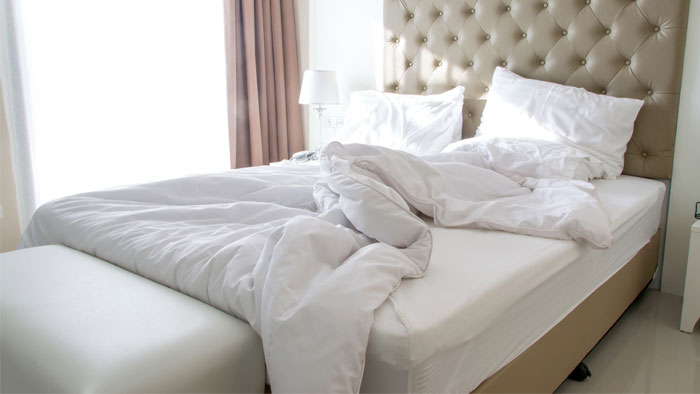The Surprising Ways Temperature Can Impact Your Sleep
Now that summer's here, the nights are getting hotter. This means your sleep might become a little less restful. If you notice you're not sleeping as well these days, consider the temperature of your room. Having the right temperature can make a surprising difference to your sleep quality.
What Is the Ideal Sleeping Temperature?
The ideal sleeping temperature can vary from individual to individual, but the general rule of thumb is that a cooler room can help you sleep better. Your body temperature naturally starts to drop in the late afternoon and into the evening, preparing your body for sleep. It's part of your circadian sleep-wake cycle. A lower temperature signals that it's time to sleep, and an increase in temperature signals to your body that it's time to wake up. When your room is too hot, you might sleep less deeply, dream less, and wake up more frequently. However, going too cold can be detrimental too. Extra cold rooms might cause your body to work harder, one study said, which could be why some heart attack rates are higher in the winter. In addition, using a draft from an open window or the AC to make the room colder might actually hurt your sleep. Airflow directly blowing on a person, even if it's very low, might cause you to wake up more frequently and sleep less deeply. So in general, keep your room cool but not too cold, and try not to have airflow blowing directly on you. The ideal sleeping temperature is typically somewhere between 60 and 67 degrees Fahrenheit, although it can vary for each person.
How to Create a Cooler Sleep Environment
But what do you do if you want a cooler sleep environment, but your partner thinks it's too cold? Well, you can provide blankets and warmer clothes for your partner so you can turn down the AC. But there are other things you can do, too. Use blackout curtains to keep your room from getting too hot and wear lighter, breathable fabrics while you sleep. Don't exercise close to bedtime, as this can raise your body temperature for several hours and keep you more alert. Take a shower or bath before bed. Look for sheets and pillowcases made of material that stays cooler longer. You can even get a mattress topper filled with water that is cooled before you go to bed, sometimes to 60 degrees or lower. These are typically twin-sized, so you'll be the only one sleeping on a cooler mattress. Some even come with a feature that warms the mattress topper slightly in the morning, to help you wake up. As you can see, sleep temperatures can have a surprising impact on the quality of your sleep. But even if your partner doesn't want the room as cool as you do, there are plenty of workarounds you can use to help cool down your body.


